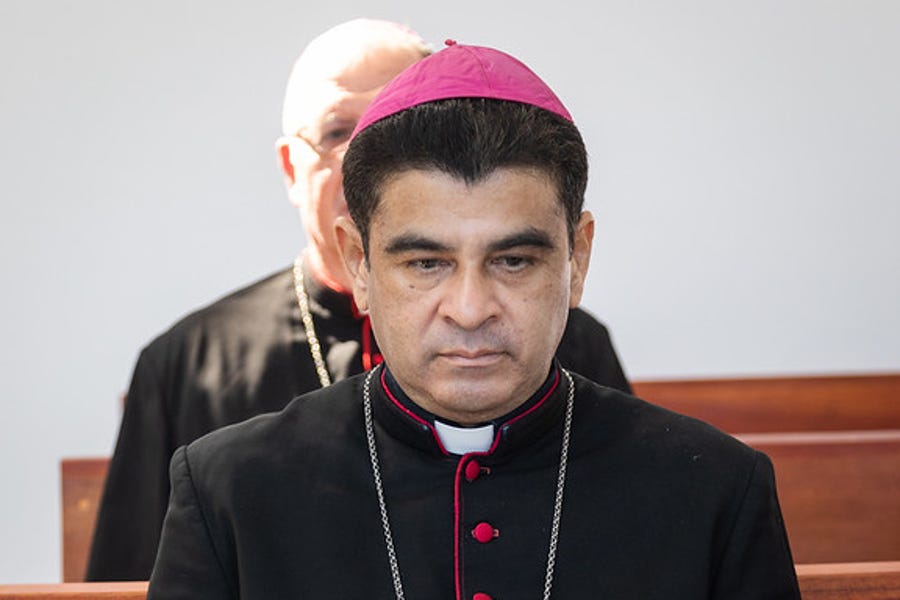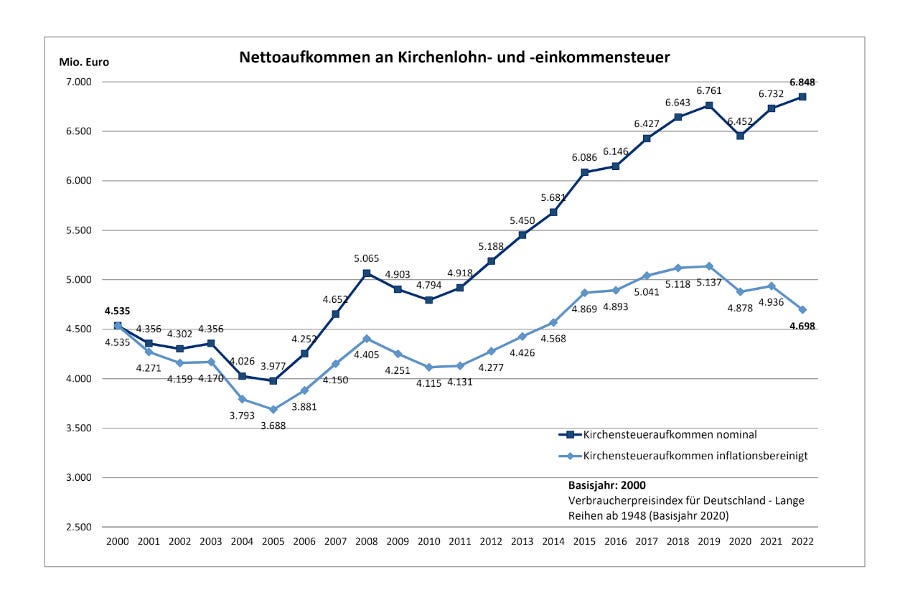Happy Friday friends,
I hope you were able to take a few days off and have “a very lot of independence,” as a British member of parliament used to wish me over the Fourth.
JD has been out of all contact this week, camping in the wilds with his son, which has been an unnerving experience for us in the Pillar offices. And by that I mean me.
It’s an odd function of this partnership that, despite living some 1,600 miles apart, we are in almost constant contact. It’s not unusual, given the time difference, that he’ll be the last person I speak to at night and me the first he hears from in the morning — much to our wives’ chagrin.
I’ve sometimes wondered exactly how close we’d be if we lived in the same city, or if the added proximity would drive us both mad.
Either way, this is the first week we haven’t spoken since we launched The Pillar two and a half years ago — probably longer than that — and, since he won’t be reading this, I don’t mind telling you it’s been a weird experience.
I think we’ve kept the coverage up since he clocked off last Friday (and there’s a lot of news to get through in a minute) but I have sincerely missed him all week. Not in a mawkish “Gee, I wish JD was around” kind of way, but in a deeper and also more practical sense.
Pretty much everything we do here at The Pillar is a collaborative process, including these newsletters. We talk about every story, what we want to cover, what’s coming next. We dissect every business decision one of us wants to make, and turn inside out any opinion the other dares to express.
Any time either of us has an idea, we worry it to death between us, often ending up switching sides several times during the argument. I’ve sorely missed that process this week. After writing one thing in particular the other day, I reread it several times before posting and genuinely couldn’t stop asking myself if I was sure I was happy with it.
The truth is, without JD to squabble with, I often can’t be sure if I really think something anymore. He’s the best critic of my writing and, just as often (and more importantly) my reasoning and judgment.
I’ll be glad to have him back on Monday. And I am just as glad he actually managed to spend a whole week without working. Neither of us have ever done that since 2018, probably. And, while I doubt I could manage it, I look forward to trying it some time.
Anyway, here’s the news — and it’s a week’s worth to get through, so buckle up.
The News
Nicaraguan Bishop Rolando José Álvarez Lagos was briefly out, and then back in prison this week.
The prelate had been in the country’s notorious Modelo prison since February, after being convicted of conspiracy against national integrity, propagation of fake news, aggravated obstruction of functions, and disobedience to authority, stripped of his civil rights, and sentenced to 26 years in jail.
The expectation — at times almost reported as fact — was that he would go into exile, heading first to Rome.
Obviously, that didn’t happen. So what went wrong? The Ortega regime, it should be remembered, never wanted the bishop in jail in the first place — they wanted him gone — but Álvarez refused to leave his people, his diocese, or his country.
It seems the bishop doubled down on that this week, refusing to go into exile at all — even with the Vatican Secretariat of State encouraging, but not ordering, him to do so. As Edgar reports, Álvarez went further, saying he’d only accept early release from prison if he could stay in the country and the government released five other priests being held and unfroze the bank accounts of Catholic organizations in his diocese.
It’s easy to see why, as a matter of PR, the government would prefer to have Álvarez out of jail. But it's equally obvious they won’t allow the bishop to dictate terms — it would be the beginning of the end for them as a totalitarian government.
It’s exactly this tension which makes Álvarez so powerful, and so hard for the government to understand.
Ortega, it seems, made the calculation that after months in jail, Álvarez would willingly take the ticket into exile if it were offered. But he underestimated the bishop’s commitment, and now he’s only amplified his witness against the regime in the process.
—
The most famous traditional pilgrimage routes, like the Camino to Santiago in Spain, remain a big international attraction. But this summer, three American bishops and a priest took a narrower path, and I’d suggest an ever better way, trekking St. Cuthbert’s Way — a 62-mile route across the English-Scottish borders to the Holy Island of Lindisfarne.
Bishop Conley spoke to Luke Coppen about their hike this week, the history of the route, and how they kept themselves going across some pretty choppy terrain for 8 hours a day. Including, so he told Luke, by listening to The Pillar Podcast, which I confess made me smile.
—
The big news out of Rome in the last week was the appointment last Saturday of a new prefect for the Dicastery for the Doctrine of the Faith. And we have three stories for you on it.
Fernández will assume his new office in September, but he’s already very much the talk of the town.
—
In an interview Wednesday, the archbishop waded right into some of the immediate criticism his appointment generated.
He was asked point blank if he “agreed” with his new department’s statement in 2021 that the Church has no power to bless same-sex unions.
“Marriage in the strict sense is only one thing: that stable union of two beings as different as male and female are, who in that difference are capable of engendering new life,” he said. “I believe that we must avoid gestures or actions that could express something different. That is why I think that the greatest care must be taken to avoid rites or blessings that could feed this confusion.”
But, he continued, “if a blessing is given in such a way that it does not cause that confusion, it will have to be analyzed and confirmed.”
This is definitely something worth keeping an eye on.
—
Apart from Archbishop Fernández’s theological views, he’s also faced questions about how well-suited he is to leading the department which is also responsible for overseeing cases of clerical abuse of minors.
I’ve seen a few people note this week that Fernández lacks any formal legal training or canonical education, and flag criticism of his handling of cases in his current archdiocese of La Plata.
You can read the whole thing for yourself, but I would note that criticizing Fernández’s appointment on the grounds that he’s not a canon lawyer seems a bit much to me. The last doctrinal prefect with a canonical degree retired in 1968 (and he had several theology degrees too). Every one since has been a theologian because, as Pope Francis pointed out in his letter to Fernández, that’s the department’s primary function.
More to the point, if you’re looking for a potential prefect with a canon law degree and a spotless record dealing with the worst kind (and highest level) of abuse cases in the Church, the shortlist probably only runs to one person — Archbishop Charles Scicluna of Malta.
Scicluna was himself, for a while, considered a potential frontrunner to succeed Cardinal Ladaria as DDF prefect, but there was a groundswell of opposition to the prospect of a “mere lawyer,” not a theologian, running the Church’s doctrinal office — in some cases from the same people now making the reverse criticism of Fernández.
Anyway, you can read the whole analysis here.
—
Amid all the talk about his successor, it is worth noting that the outgoing DDF prefect, Cardinal Ladaria, had served that department since 2008 and the pope only took his resignation now that he is 79 years old.
In fact, in a lot of key offices, 79 has become the new 75 — with cardinals serving years past the notional retirement age. But even with Francis leaving many in post until he absolutely has to replace them, there is still a string of big appointments the pope will need to make in the next year.
—
One other key appointment Pope Francis made recently was to pick Bishop Jorge García Cuerva as the new Archbishop of Buenos Aires.
The 55 year-old will be installed next week, and Edgar Beltran took a look at the incoming archbishop, whose nomination has been met with surprise in Argentina — he is not a high-profile bishop, and his alleged ties to sectors of the country’s political left have become the subject of some discussion.
—
Meanwhile, in Germany, the bishops’ conference and the Central Committee of German Catholics have announced the creation of six working groups to advance the resolutions of their controversial “synodal way.”
As Luke reports, the announcement is a strong signal that neither group is backing down over their agenda for the local Church, despite frequent Vatican objections and a recent move by a minority of the country’s bishops to de-fund the project.
Catch up with the full report.
—
Speaking of the German bishops, they have a unique position to consider — while Catholics are leaving the Church in that country faster than ever before, the bishops conversely seem to be richer than ever, too.
The Catholic Church in Germany received a record 6.848 billion — with a B — euros through the country’s church tax system last year, the same year more than half a million Catholics left.
So, this year’s record haul is actually the lowest the church tax has been worth to the bishops in nearly a decade, and the line is pointing the wrong direction for them.
—
The German bishops’ money troubles might go some way to explaining why the country has slipped down the rankings of major contributors to the annual Peter’s Pence collection.
In figures released by the Holy See, the United States was — by some margin — the most generous nation to the pope’s global collection, making up nearly a quarter of the total amount given (nearly 30 million euros).
—
While pre-marriage preparation is a serious ministry in a lot of parishes and dioceses, you don’t often get nearly as much time and attention devoted to post-marriage formation. But in Oklahoma, that’s changing.
And here’s the kicker: the scheduled part of the evening usually finishes by 7:30, but the babysitting keeps rolling until after 10 p.m. — so couples can get out for dinner a deux as part of the night. Sign. Me. Up.
The program has taken off. And, unsurprisingly, couples are saying they value and need the ongoing formation for their lives together, as much as the chance at some alone time.
—
World Youth Day is less than a month away, and the final preparations are underway. But as the largest event in Portuguese history, putting it all together takes some heroic efforts.
As Filipe d'Avillez wrote for us this week, talking to the people involved, you get a sense for just how much needs to come off exactly right — but also how much will always be up in the air, no matter how much predicting or planning goes into it.
This is a great story, I urge you to make time for it.
—
The liturgical dispute in the Syro-Malabar Church carried on this week.
I’ve asked around among friends at other Catholic outlets about this story because I couldn’t understand why no one else is giving it much coverage. The reason, it seems, is that not many people seem to think it’s front-page news.
I just want to make this absolutely clear: a more-or-less open civil war in the second largest Eastern Catholic Church — pitting mostly priests and the lay faithful against the Church’s synod and the Holy See — is a very big deal.
It’s very much worth your time staying on top of.
—
And finally, in case you missed it at the end of last week, a Texas judge has thrown out a million dollar lawsuit filed by Carmelite nuns against Bishop Michael Olson of Fort Worth.
Bishop Olson expressed his gratitude for the decision, which found that the court had no jurisdiction to hear the case between the nuns and their bishop.
You can read all about it here.
Bishops of the Holy Island
I’m deeply envious of those three bishops (and one priest) who just completed their pilgrimage to the Holy Island of Lindisfarne.
For a start, getting “soaked to the bone” trekking through waist-high grass in the north of England, hoping to make it to the next pub, sounds idyllic to me here in Washington, where it is currently 90-odd degrees and roughly 400% humidity.
Lindisfarne is also the home of some of my favorite saints, the great Celtic evangelists who brought the faith of Christ from Ireland through Scotland and down into the north of England, before meeting the Gregorians of St. Augustine’s mission to Canterbury in the middle, there to fight about the proper date of Easter.
The bishops of Lindisfarne had some real characters among them, not least St. Cuthbert, who gave his name to the pilgrim way and St. Aiden, the founder of the monastery on the island and the first bishop thereof.
But my favorite bishop of the Holy Island is a more contemporary figure.
Bishop Victor Guazzelli was a longtime auxiliary bishop of the Archdiocese of Westminster and something of a maverick. He had the rare talent, and curse, of saying pretty much whatever he thought about any subject.
Because of his dedication to the poor and a single notorious TV appearance in 1992, in which he basically said he thought couples might decide in conscience to use contraceptives, he was painted as something of a progressive Don Quixote of the Church in England.
I cannot speak to his younger self, but the retired auxiliary I met in the late 1990s and early 2000s was a man of great humor, and deep devotion to Christ and to the Gospel. He was also, on his consecration as auxiliary bishop, given the titular see of Lindisfarne, which is in the modern Diocese of Hexham-Newcastle.
I know this because Bishop Victor famously attempted (I think successfully) to persuade his local golf club to give him a discounted overseas membership, on the grounds that his notional see was a tidal island.
But I first learned of the bishop’s titular assignment while on a pilgrimage to Lindisfarne around 2000-2002, I can’t exactly remember the year.
We were a smallish group of 30 or 40 young Catholics from an East End parish, and being a native son of that part of London, the bishop was something of a regular among us. At the end of the pilgrimage, we had Mass in a hall on Lindisfarne, which is quite a small place (only one pub, as I recall) and in his homily he announced to us, pretty much the entire Catholic population of the island, that this was actually his nominal diocese and he its proper bishop.
We of course rapturously welcomed the retired auxiliary coming into his own. It was only on the bus back that someone wondered aloud if maybe a bishop arriving in his titular see, presiding over Mass and announcing himself to a welcoming assembly might have some kind of legal effect.
Ever the humble man, Bishop Victor apparently later presented himself to the cardinal and mentioned that he might have accidentally taken possession of his titular diocese, and was that a problem at all?
As I heard it told, the cardinal closed his eyes, shook his head, and said something to the effect of “Victor, I’m going to pretend I didn’t hear that. Please don’t ever say it again.”
And I don’t think he ever did. Mostly.
See you next week,
Ed. Condon
Editor
The Pillar








